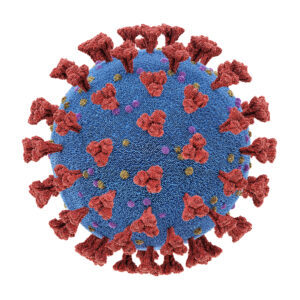 Evolving disease, evolving guidelines
Evolving disease, evolving guidelines
By Richard Sternberg, M.D.
People have questioned the Centers for Disease Control and Prevention (CDC) and Food and Drug Administration (FDA) because of changing recommendations for treatment, isolation and quarantine, vaccination, and social distancing. Some say these agencies and the government are lying to us.
Covid-19 management, though, remains an evolving scientific investigation. Development of prevention, treatment, and best practices to prevent the disease while minimizing overall societal impact is constantly changing.
Research and data has improved what seemed to be the best available advice in public health actions two years ago, at the outbreak of the disease. The fact that what scientists have told us in the past is not what is the best practices now does not mean that they were lying to us. It means that in their best judgment they gave advice which they also followed for themselves and their families, that they thought best at that time.
Covid-19 cases have increased recently due to the emergence of Omicron, with more active cases and hospitalizations than at any other time during the pandemic. The death rate remains high, though not as high as during the initial stages when we had limited treatment available. A much higher percentage of the population is infected on any given date, and we are more easily able to determine who’s infected due to better and more available testing.
The number of people determined to have COVID at any one time has become so great that segments of society are beginning to collapse. The CDC has taken into account societal impact due to illness as well as isolation and quarantine requirements in updating its recommendations.
The proper use of easy home testing kits can open up society by allowing more people to terminate quarantine and isolation sooner. While legitimately-produced tests, especially used incorrectly, can show false negatives, false positive results are rare. Testing at an approved site using the more accurate PCR test, while taking longer to get a result, can give a more accurate answer.
The CDC’s website – cdc.gov/coronavirus/2019-ncov/your-health/quarantine-isolation.html – outlines for every reader in an easy-to-follow chart the most up-to-date guidelines for quarantine and isolation. Last updated on January 9, 2022, the site recommends shorter isolation for asymptomatic and mildly ill people in quarantined periods of five days to focus on when a person is most infectious.
The CDC and FDA recognize the need to keep society going and to deal with the mental health aspects of the pandemic. We are running out of hospital beds, ICU beds, and healthcare workers. We are also running out of essential workers in other fields. The benefit to society following these current recommendations is believed to outweigh the risks involved.

